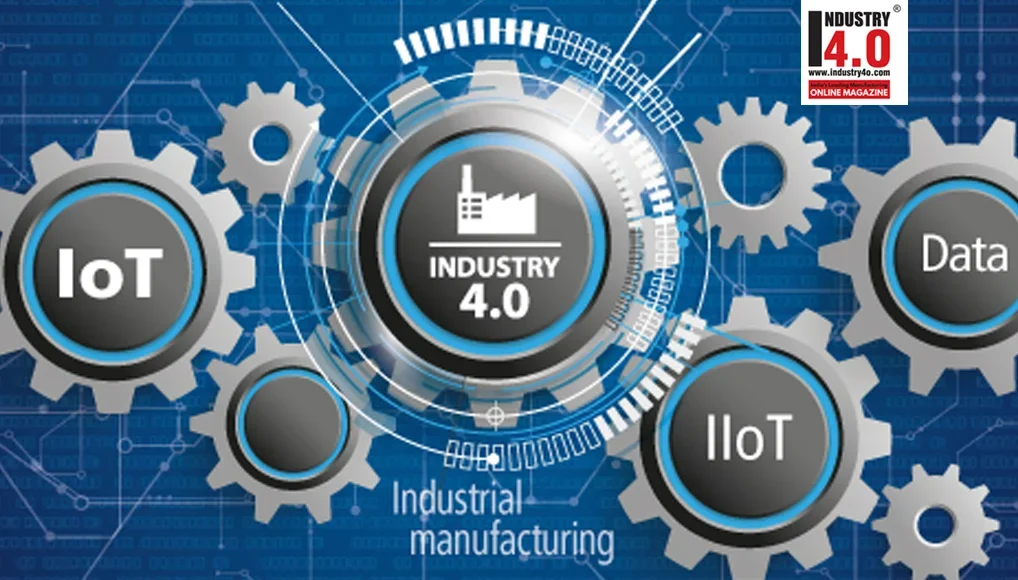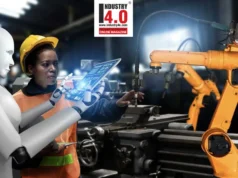Keeping in mind the worldwide evolutionary stage of Industry 4.0, this article is prepared with a view to discuss the shortcomings and decision-making in Industry 4.0 implementation. Also, the editorial team at www.industry4o.com spoke to the industry experts to find out their views and perceptions on the barriers to use Industry 4.0. The article seeks to present facts on the number of challenges facing by companies in the context of the fourth industrial revolution.
The technological revolution has been a determining factor for Industry 4.0. Changes in economic and social life have resulted in policies that support the digitalization of industry. People do not have time everything needs to be quick and easy, modern technologies offer this. As such, High-Tech Strategy is a crucial element on which Industry 4.0 is built and innovations under pinits development.
 There are a list of barriers that are classified into six categories:
There are a list of barriers that are classified into six categories:
Legal barriers to the implementation of Industry 4.0
Impediments to Industry 4.0 are due to the absence of regulations and working procedures in developing nations and also lack of proper legislative measures for the growth of Cyber-Security, Cloud Computing, Artificial Intelligence and Augmented Reality in developing countries.
Employee resistance to the introduction of new technologies
As with any transformation, the introduction of new technologies can be anticipated to result in organizational resistance. This may be the most challenging barrier to change and, if not rightly addressed, may significantly hinder the successful implementation of new technologies.
The organization may face resistance from employees who are fearful of losing their jobs or who do not have the skills needed for new technologies, but also from middle managers. Loss of a critical workforce will lead to a disorderly scenario at the workplace.
Furthermore, in the absence of technology standards, processes and lack of clear guidelines on the implementation of Industry 4.0 have too contributed to vagueness in many organizations.
Technology glitches in the implementation of Industry 4.0
Lack of IT infrastructure and other facilities are coming in the way of implementation of Industry 4.0.
Interestingly, financial drivers have not been seen as influential in the implementation of Industry 4.0. Customer satisfaction, for instance, is without any doubt a more significant driver of Industry 4.0 than business profitability.
IoT plays a key role in the infrastructure of Industry 4.0. Lack of IT solutions for effective communication and Internet coverage can act as a major barrier to many products and services.
High implementation cost could stall the implementation of Industry 4.0
Small and medium-sized industries find it difficult to adopt Industry 4.0 because there is a lack of capital for appropriate emerging technologies. The rise of new digital technologies such as IoT, Big Data always poses a significant investment threat to organizations as potential capital losses and in such cases, no recovery can take place.
Cultural drawbacks pre-empt companies from implementing Industry 4.0
The role of organizational culture in transformation is not adequately underscored. This is usually not identified even though managing organizational resistance and achieving cultural acceptance of innovations is usually a priority task in the framework of Industry 4.0 projects.
The paucity of financial resources could hamper the implementation of Industry 4.0
Small and medium enterprises (SMEs) have limited financial and human resources and will face more difficulties in adopting Industry 4.0 than large companies. They are also slower to address the threats and opportunities posed by Industry 4.0. Yet another factor that could go against the implementation of Industry 4.0 is the scarcity of human resources with digital competence.
McKinsey Industry 4.0 Global Expert Survey on Industry 4.0 adoption
A Global Institute-administered survey made the following revelations on how much progress has companies achieved in implementing Industry 4.0. At the prevailing stage of the development of Industry 4.0, a majority of manufacturing companies spread over the US and the UK admitted that the implementation barriers are so strong that they managed to make limited progress with their Industry 4.0 initiates.
The major barriers to implementation cited by companies were complications in coordinating actions across different organizational units; concerns about cyber security and data ownership when associated with third-party providers; lack of determination attitude to push through a radical transformation, and scarcity of talented workforce.
Organizational challenges that stop them from Industry 4.0 adoption
Among the Top-mentioned challenges are:
- Lack of combined leadership that makes cross-unit synchronization difficult within the company.
- Data ownership apprehensions when selecting third-party vendors for hosting and operating company data.
- Lack of bold approach to commence the radical digitalization plan.
- Unavailability of in-house talent to support the development and implementation of Industry 4.0 initiatives.
- Difficulties with putting data together from different sources to allow initial connectivity.
- Inadequate knowledge of technologies, vendors and IT outsourcing partners that could facilitate in implementing the core initiative.
Conclusion: Companies and their industrial processes require adjusting to the fourth industrial revolution if they don’t want to be overshadowed by developments in their sector and by their rivals. Those who embrace the fourth industrial revolution will reap positive benefits, while those who do not fall behind quickly.
Editorial team of INDUSTRY 4.0 can be contacted at [email protected]
Also read our earlier articles











